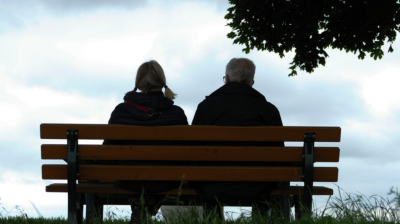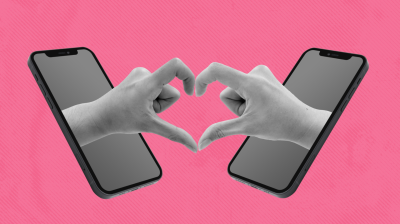My journey with self-harm
Kate takes an honest look at their journey with self-harm, from triggers to recovery, they discuss strategies used for prevention and healing.

TW // This piece discusses self-harm. Please look after yourself if you choose to read on. Our text support service details are listed below.
I self-harmed for the first time when I was 14. I remember it distinctly. It gradually became my coping mechanism, my resort when things got dark in my head. It was only last year, that I got a grasp on fully understanding it and developing means of effectively resisting the urge.
I wasn’t consistently harming myself in that period, sometimes I’d go a few weeks or even months without doing it. Other weeks I couldn’t go a day without doing it. It came in different forms, as it can for different people. A lot of people don’t even realise that their behaviours can and should be considered a (very much undeserved) form of self-harm.
On a surface level, it usually comes in the form of physical harm inflicted on the self: cuts, burns, scratches, etc. But it also comes in the forms of alcohol or substance abuse, bingeing behaviours, and recklessness that puts yourself in harm. I think it needs to be better understood that self-harm is varied and it doesn’t need to fit into a box. It is something both universal and individual; in that, while it takes different forms for different people, you are never alone.
Carrying the secret of self-harm
One thing I only recently came to understand is that for a lot of people that self-harm, it is similar to an addiction: an unhealthy coping mechanism which is compulsive in nature. I used to find that when I felt the urge to self-harm, I couldn’t stop myself. In my reasonable mind, I could see that it was unhealthy, but when I was in that headspace it was like it was all I could think about until I did it.
I felt as if I needed that release as if my being depended on it in that very moment. I hadn’t thought about it in that way until it was brought up to me by a therapist and it all started to make sense.
I think that’s why I was able to normalise it to myself so well like it was a necessity to me, but still one I had to mask to others due to the stigma. Self-harm was something that I understood I needed but which others would perceive as extremely unhealthy and which others wouldn’t understand – much like an addiction to anything else damaging to your health. I needed that fix, the release of the pain, but I still had to hide it so nobody would intervene. It was like this big secret I carried, I felt nobody would understand.
The reason why I did it varied from time to time. Sometimes I did it to punish myself for negative thoughts, and perceived negative behaviours when I was mad at myself. When I was arguing with a friend or family and did not know how to cope, talk about it or deal with it in any other way. I’d do it because I felt a need for release when overwhelmed with emotions.
Other times it was just this compulsive need, I felt compelled to do it and like my mind couldn’t rest until I had. I felt like there was something inherently wrong with me because I had this urge to self-destruct even when I had no obvious outward reason to. From an outsider’s perspective, my life was good and nobody would anticipate me hurting myself. It felt so random and uncontrollable.
Borderline Personality Disorder and self-harm
I was diagnosed with borderline personality disorder (BPD/EUPD) in September last year and it made the impulsivity make sense to me. This disorder is gradually beginning to be increasingly understood but those with BPD often have a tendency to act impulsively, struggle with mood swings and exhibit self-damaging behaviours in the forms of recklessness and self-harm.
I felt understood in the sense that my fluctuation in mood and my urges had some kind of explanation. I began to understand that I would need to do a lot of work to work on dealing with the urges because they were always going to affect me and would consistently be a part of my condition.
That knowing and being aware of impulsivity and emotional dysregulation was a big step going forward in being able to self-soothe and self-regulate and act against the urges. Being able to remind myself that it is my illness giving me the urges, I do not need to self-harm, it is damaging to self-harm, I don’t deserve the harm I would inflict on myself.
By all means, BPD isn’t the only condition associated with self-harm. It can affect anyone, it doesn’t discriminate. It happens for different reasons, takes different forms, and affects people in different ways. The universal thing is that despite what your mind might tell you, you are never a lost cause. No matter how dependent you are on it, no matter how bad it is or has been, you can overcome it. You can get to a stage where you are no longer reliant on self-harm to cope with difficult situations, even day-to-day life.
Recovery from self-harm
There wasn’t one fixed day that I stopped and never did it again. I can’t say for definite it will never affect me again. I just know I’ve gone longer now than I ever had in the last ten years without doing it and I’m taking it one day at a time so I don’t get overwhelmed. That’s all I can do.
Taking it in small steps makes it feel so much more manageable, and the days add up, the progress you make each day going without it is phenomenal. Just getting through each day orach hour on the days that a day feels too long. Just taking it in chunks.
I’ve had relapses, I used to let them define me. I actively try to act compassionately towards myself in these situations now. It can feel like a dumb cliche to tell yourself to love yourself (Justin Bieber didn’t know what he was on about really). People who struggle with mental health issues can have a negative perception of themselves and struggle with self-love.
I have days where I hate myself more than anything, but more days than not I perceive myself more as a friend than an enemy. I have realised I’m a victim of the thoughts that make me want to hurt myself and that I am not deserving of those thoughts. I’m not perfect but I’m not a bad person.
I sometimes think of myself like a character in ‘The Sims’ in the sense that I need to be fed, watered, and showered so I don’t cease to exist in the same way a Sim would in a pool with no ladder. I need to go for a little walk every day and have my little girl dinner in the evening even if it isn’t the most nutritious meal it is something to keep me sustained. I also let myself rest when I need to.
Gradually it became a routine and my mind thanked me for it. I started to understand the need. My body became a nicer place to live – nourished and rested – and my mind in turn. I started to feel sad for older versions of myself that felt the need to punish myself needlessly. It took baby steps, I’m by no means all the way there.
Celebrating my self-harm recovery milestones
I found celebrating the small achievements gave me a reason not to give up and relapse on a number of occasions. Time-counting apps are great for this.
One such app allows me to count the time since I last self-harmed and log my feelings and any changes I have noticed the longer I go in my journey. I can mark milestones and I have the option to chat with the community sharing my journey.
My favourite part of this app is the section where I can insert my motivations to stop, I can look at it when I am struggling and it has always been a real boost for me. I don’t feel silly celebrating every milestone! 1 day? Fantastic – I get a fancy coffee or watch one of my favourite films. A week? Incredible!!! Get a takeaway. A month? Wow – thrift something cute, plan a fun day out with someone I love.
I like to come up with my own incentives. It’s important to celebrate every milestone. It’s so hard getting help, and recovering and every second I go without relapsing is an exceptional achievement worth commending.
Over the months I’ve developed a few healthy coping mechanisms I’ve found as alternatives to self-harm.
Talking to someone I trust
I used to be so afraid to talk about self-harm in fear that I’d be perceived as toxic. In reality, it’s not something that’s spoken about enough. I have close friends I talk to when I’m struggling, as well as my partner.
Whenever I’ve felt as if I couldn’t talk to anyone I knew personally, I’ve used the service ‘Text About It’ (50808) where I anonymously spoke to a trained volunteer who got me through the crisis and made me feel listened to and understood.
Journaling is a good way to map out my feelings – as art can be. Reddit forums can also be helpful (there is a Reddit forum for everything – I can vent there anonymously or under a pseudonym to feel listened to).
Consistently seeking professional help
Speaking to my GP about medication and finding one that works for me (there are lots out there and even if one or two haven’t suited you in the past, there is likely something out there that will help you deal with your symptoms).
Starting therapy
I personally found starting therapy very overwhelming. My big fear as an incredibly awkward person was that I wouldn’t know what to say and it would be awkward or that I’d be judged. However, I have always found therapy comforting, therapeutic and helpful.
Everyone is very deserving of help and there are many options out there.
You are not alone
Please know you are not alone. I’m proud of you, no matter where you are on your journey. You are stronger than you think. You can do this.
Feeling overwhelmed and want to talk to someone?
- Get anonymous support 24/7 with our text message support service
- Connect with a trained volunteer who will listen to you, and help you to move forward feeling better
- Whatsapp us now or free-text SPUNOUT to 50808 to begin.
- Find out more about our text message support service
If you are a customer of the 48 or An Post network or cannot get through using the ‘50808’ short code please text HELLO to 086 1800 280 (standard message rates may apply). Some smaller networks do not support short codes like ‘50808’.






